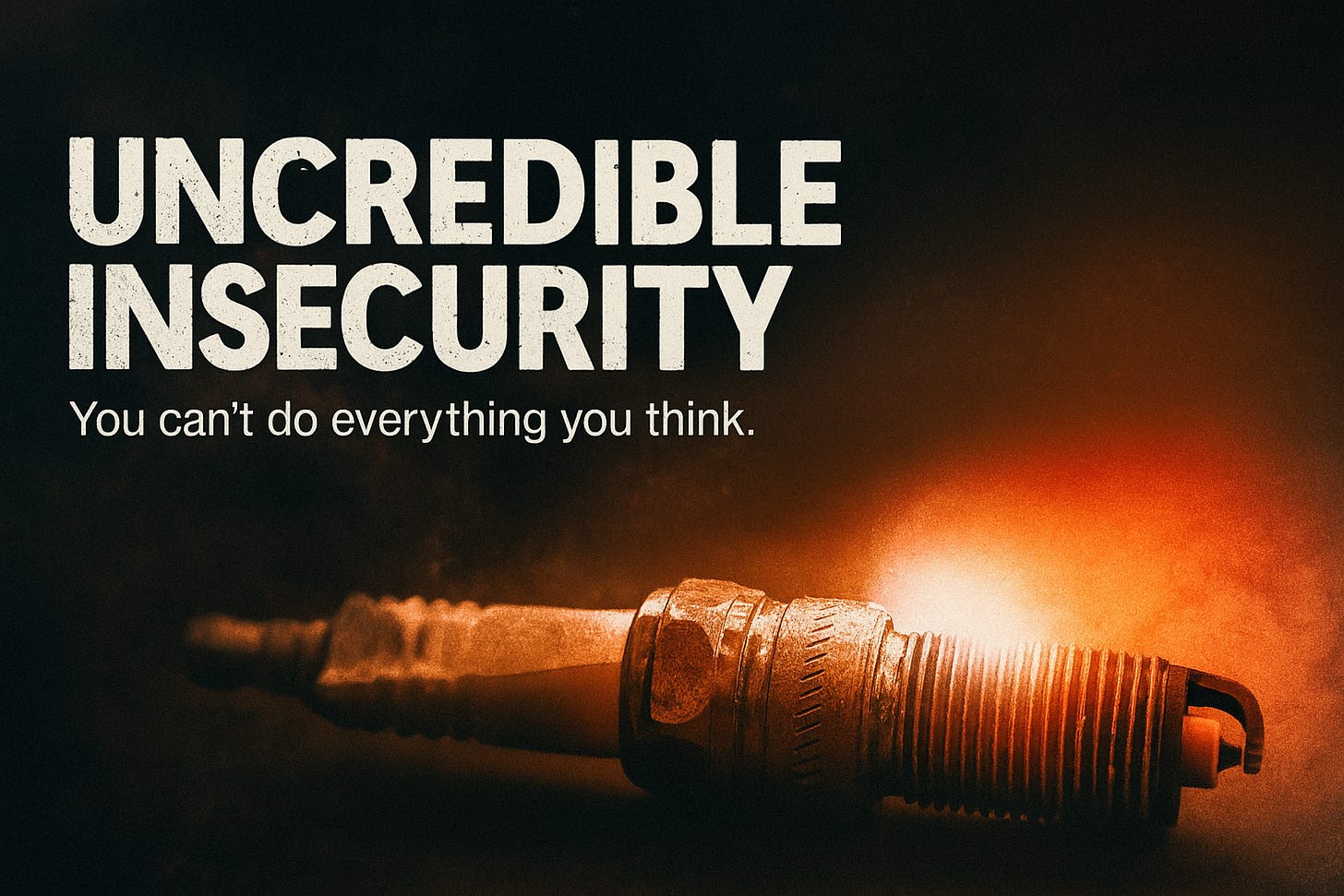Uncredible Insecurity
You can't do everything you think you can.
The van began to sputter.
Was I out of gas?
No. The tank was half full.
We limped to the movie theater and parked. Stepping out into a wet slush of partially melted snow, we trudged toward the lobby, chasing warmth as quickly as possible.
Our Dodge Grand Caravan had been acting up for a while. When the check engine light first came on, the code reader pointed to a cylinder misfire. Typically, that means new spark plugs.
So, as I’d done many times before, I replaced the plugs — and even the wires for good measure.
The False Fix
The van seemed fine for a few weeks.
Then, on our way to the movie, it started acting up again.
Frustrated, I took it to a shop and explained what had happened. I told the mechanic I’d replaced the plugs and wires and couldn’t understand why I still had a misfire.
What happened next, I’ll never forget.
Our van sat in that garage for the next three months. The confused mechanic traced wires, updated his scan tools, and chased wires again.
Finally, when I’d nearly given up on ever seeing the van again, I got a call: it was ready.
When I arrived, the mechanic asked,
“Did you say you did the spark plugs on this?”
Confidently, I replied, “Yeah, I did.”
He pulled a spark plug out of his pocket and handed it to me. The ceramic had chipped when I installed it, causing an arc that led to the misfire.
The Real Problem
In the end, the biggest mistake both of us made was assuming that the work I’d done was done correctly.
I no longer have that car, but I keep that spark plug in my current vehicle.
Why?
It’s a reminder to check my own work.
Too often, we become so confident in our abilities that we forget we can make mistakes. That bias leads us to assume that whatever problem we’re facing, it can’t possibly be us.
That spark plug reminds me that while unfounded insecurity is bad, a healthy amount of insecurity can be a very good thing.
A little doubt keeps you sharp.
It forces you to assess your performance honestly — and improve.
Without that, you get stuck. You stop growing.
Confidence vs. Insecurity
Being so insecure that you’re paralyzed is obviously bad.
But being so overconfident that you spend months refusing to consider that you might have made a mistake — that’s just as dangerous.
Now, whenever I run into a problem, my first thought is:
“What’s the most recent thing I did that I might have done wrong?”
Too much confidence leads to arrogance.
Too much insecurity leads to paralysis, anxiety, and depression.
Finding the perfect balance between healthy confidence and appropriate insecurity —
well, that’s…
Uncredible.
Music for voice over by Jeremusic70 on Pixabay.


